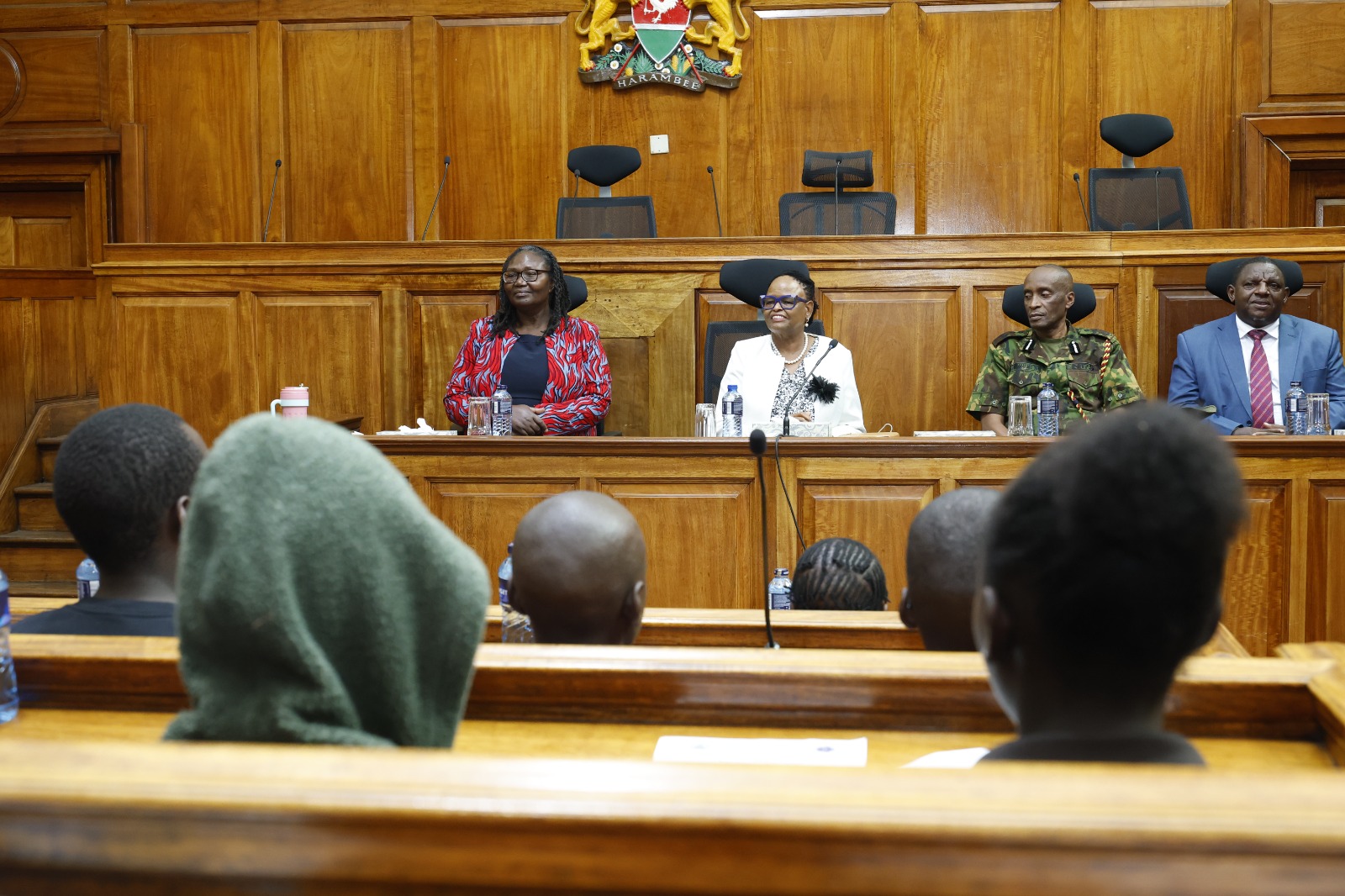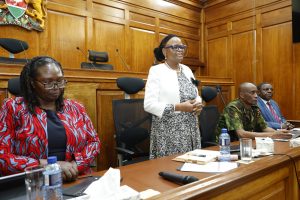CJ Koome reaffirms Judiciary’s commitment to protecting the rights and dignity of children

Chief Justice Martha Koome has reaffirmed ?the Judiciary’s commitment to protecting the rights and dignity of every child in Kenya, saying ?this obligation is firmly anchored in the Constitution, the Children Act 2022, and the ?international commitments the country has undertaken.
Reiterating the Judiciary’s commitment to fully implement the Children Act 2022—describing it ?as a transformative legal framework—CJ Koome announced that the Judiciary will establish ?dedicated Children’s Courts staffed by trained personnel who understand child psychology and ?child-sensitive procedures.
“We will continue strengthening the Office of the Deputy Registrar of the Children’s Court and ?ensuring that children’s cases are heard and concluded within the legally mandated period of six ?months,” she added.
She urged the National Police Service to fully operationalise the Children Protection Units and ?the Children Police Unit to ensure that children are handled in ways that prioritise their ?protection, emotional safety, and well-being.
“As justice actors, we must prioritise diversion programmes that redirect children away from the ?formal justice system and towards restorative, rehabilitative processes that avoid stigma and ?disruption to their education,” she said.
Speaking during CJ’s Dialogue with Children drawn from borstal institution, remand homes, ?rehabilitation school, reception centres, probation hostels and Children homes to Commemorate ?World Children’s Day and the Annual Child Justice Service Month, 2025 themed: My Day, My ?Rights, CJ Koome emphasized that institutionalisation of children must remain a measure of last ?resort and, when absolutely necessary, used for the shortest time possible.
“As we celebrate World Children’s Day, I want to reaffirm the Judiciary’s and the NCAJ’s ?commitment to ending unnecessary institutionalisation and ensuring that every child who ?interacts with the justice system is treated with dignity, compassion, and fairness,” she said, ?adding that children in institutions are not offenders to be punished but young people in need of ?guidance, protection, and a second chance.
She noted that before any child is committed to institutional care, all alternative family and ?community-based options must be thoroughly explored. Even where placement is unavoidable, ?she stressed, children must be treated in ways that preserve their dignity, nurture their potential, ?and honour society’s obligation to guide and protect them.
CJ Koome observed that many children in institutional care continue to face gaps in education, healthcare, psychosocial support, nutrition, and access to safe recreational spaces. She insisted that for such institutions to fulfil their rehabilitative purpose, they must be equipped to meet the ?developmental, educational, and emotional needs of children.
“Every child, irrespective of their circumstances, is entitled to free and compulsory basic ?education, and this right cannot be taken away simply because a child finds themselves within ?the justice system,” she said.
The Chief Justice explained that a rehabilitative environment must be grounded in safety, ?learning, and psychosocial well-being, noting that strengthening family and community-based ?rehabilitation is essential. She called for an upgrade of children’s institutions across the country ?to ensure decent, dignified, and child-friendly living environments.
“We must therefore strengthen programmes that protect children’s mental health, build their ?confidence, and equip them with life skills for meaningful reintegration,” she said. “Mentorship, ?counselling, mediation, and psychosocial care all contribute to creating a supportive ecosystem ?that allows children to grow and thrive.”
CJ Koome noted that, in line with the broader justice transformation agenda, the Judiciary is exploring restorative and community-based alternatives that offer children opportunities for ?healing, reconciliation, and reintegration without the trauma associated with formal processes.
She encouraged courts across the country to activate Children Court User Committees—bringing ?together magistrates, police, probation officers, children’s officers, legal aid providers, civil ?society, and community representatives—saying that these committees are crucial in ensuring ?coordinated support and timely resolution of children’s matters.
The Chief Justice also called on the Prisons Department to develop tailored rehabilitation programmes for older adolescents aged 16 to 20 who may be entangled in gangs or violent ?lifestyles, noting that young people require structured, supportive interventions—not punitive ?environments—to redirect their lives and regain hope for a productive future.









